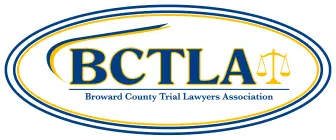 Personal injury claims seem straightforward and easy to resolve when you have not done anything wrong to cause the accident.
Personal injury claims seem straightforward and easy to resolve when you have not done anything wrong to cause the accident.
However, the process of recovering all of the damages you’re legally entitled to can be complicated and challenging to navigate. Accidents can often involve multiple parties, such as a driver, a business entity, private insurance providers, and even employers (if it is a workplace injury).
That means if the dispute ends with legal action, the process of pursuing compensation can be lengthy and complex.
But that’s where Florida’s collateral source rule comes in handy. Florida has implemented a law that protects the injured victim from unnecessarily suffering due to damage award deductions by the at-fault party.
So, what exactly is the collateral source rule in Florida, and how does it affect the injured victim’s compensation claim? In this article, the Florida personal injury lawyers at Eltringham Law Group discuss common collateral sources and whether any exceptions exist.
What is Florida’s Collateral Source Rule?
The collateral source rule in Florida is a legal doctrine stipulating that any payments made to the injured victim by a third-party source, such as insurance or other benefits, should not be deducted from the economic damages awarded to the injured victim in a personal injury case. In other words, if injured due to someone else’s negligence, you are entitled to maximum compensation for your losses.
This rule aims to ensure that the plaintiff does not suffer any financial loss due to collateral source payment deductions by the other party. That means that if you have already received compensation from a third-party source, such as an insurance provider, it will not be deducted from the damages awarded in court.
But what is the motivation behind this statute? The goal is to ensure that the injured victim is not unfairly penalized for having insurance or other benefits. For instance, a victim could have already received compensation from a third-party source, such as an insurance provider. In that case, they should not be further penalized by having those payments deducted from the damages awarded in court. This ensures that victims can recover full and fair compensation for their losses.
How Can Collateral Source Payments Impact an Injured Victim’s Compensation Claim?
Florida’s collateral source rule impacts a victim’s compensation claim in two significant ways. Here’s a closer look:
1. Expediting the process of receiving compensation
Naturally, the at fault party’s insurance company would wish to lessen the amount of compensation you may be entitled to by all means. For instance, they may table documentation or evidence that the injured victim already benefited from their private insurance compensation to aid their recovery, thus deserving less compensation.
The good news is that Florida civil courts do not accept any documentation or evidence that would reduce the amount of compensation the injured victim is entitled to. This fast-tracks the entire process, as there will be no need to argue over any payments the plaintiff received from third-party sources.
2. Ensuring fair compensation
The collateral source rule in Florida ensures that the injured victim receives fair and just compensation for their losses, regardless of any payments they may have already received from a third-party source. You are not unfairly penalized for having insurance or other benefits.
What are Common Collateral Sources?
Various common collateral source payments can be used to pay for medical expenses and other damages in a personal injury case. These include:
- Private health insurance
- Social Security Disability Insurance (SSDI)
- Workers’ compensation benefits
- Employee salary continuation plans
- Car insurance for income disability or health coverage
- Disability benefits
- Life insurance policies
- Medicare, Medicaid, and veterans’ benefits
- Social Security benefits
Are There Any Exceptions to the Collateral Source Rule in Florida?
While the collateral source rule significantly impacts the injured victim’s compensation claim, there are a few exceptions to its application. For instance, in the past, free and low-cost benefits like Medicaid and Medicare were ineligible for the collateral source rule. The reasoning was that these benefits bear little to no cost to the injured victim, allowing defendants to submit evidence of their payments to reduce the damages awarded.
But that is no longer the case. In a recent Florida Supreme Court decision, the jury determined that the plaintiff’s future potential Medicaid or Medicare benefits could be excluded from the damages awarded. Their reasoning? “It is absolutely speculative to attempt to calculate damage awards based on benefits that a plaintiff has not received and may never receive . . .”
Further, the court reasoned that since Medicare (and Medicaid) benefits are dependent on congressional action and public funding, they are not guaranteed. Thus, it would be unfair to the injured victim to deduct them from the damages awarded.
There are a few more exceptions as per Florida Statute 768.76(1):
- If the injured victim has received compensation from a third-party source unrelated to the injury or damages they have suffered, this payment may be deductible from the damages awarded in court.
- The courts will not permit the deductions if the other party has the right to subrogate or receive reimbursement of the collateral source payments.
- If the federal government has lien rights under Medicare or other government programs, such benefits are not considered collateral sources.
Contact the Florida Injury Attorneys at Eltringham Law Group
There are often unseen issues to every personal injury claim in Florida. You don’t have to fully understand the collateral source rule and other legal issues that may arise in your case. These complexities are for a qualified Florida personal injury attorney to address.
At Eltringham Law Group, we have the experience and knowledge to guide you through the process and ensure your rights are protected at every step. We help the injured with their claims so they can focus on their recovery. Our decades of experience mean we can counteract any tricks the defense may use to reduce your compensation. Contact us today in Boca Raton or Fort Lauderdale for a free consultation, and let us help you get the justice you deserve!
Florida Collateral Source Rule FAQs
What are the pros and cons of Florida's collateral source rule?
While the collateral source rule in Florida ensures that injured victims receive full compensation for their injuries and losses, critics argue that it is unfair to award some injured victims as much as double the compensation for their injuries.
How can a Florida personal injury lawyer help?
A personal injury lawyer can help you navigate the complexities of the collateral source rule in Florida, and they will be able to identify any potential sources of compensation, such as Medicare or Medicaid benefits. They can help ensure that these are considered when calculating damages.
Last updated Tuesday, May 7th, 2024






